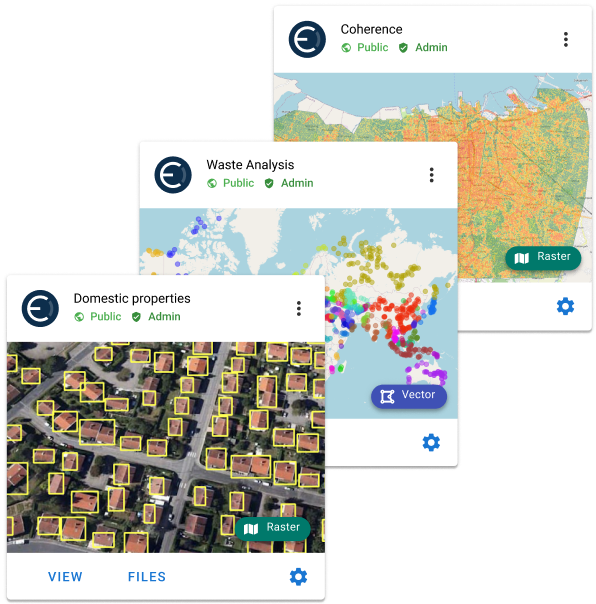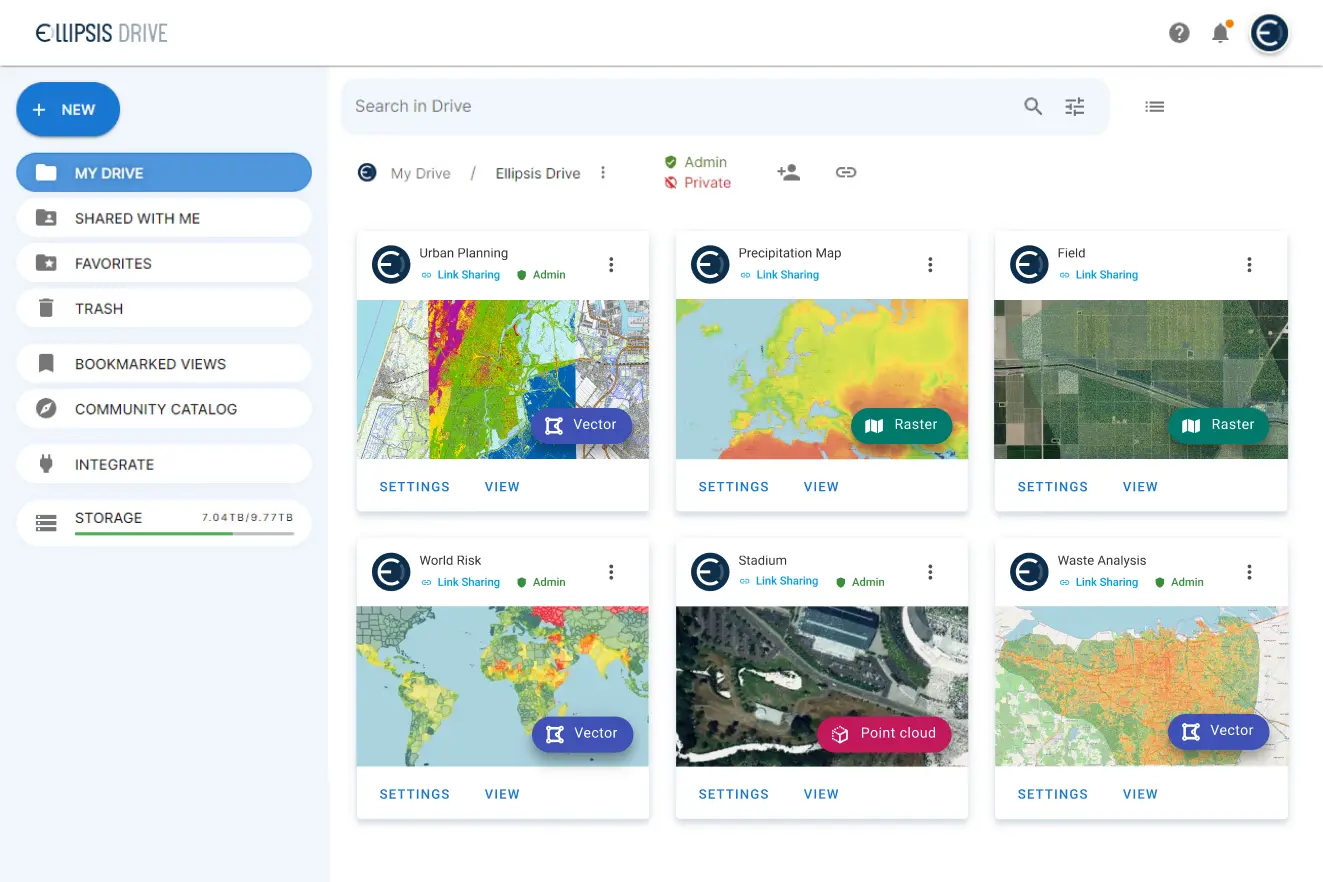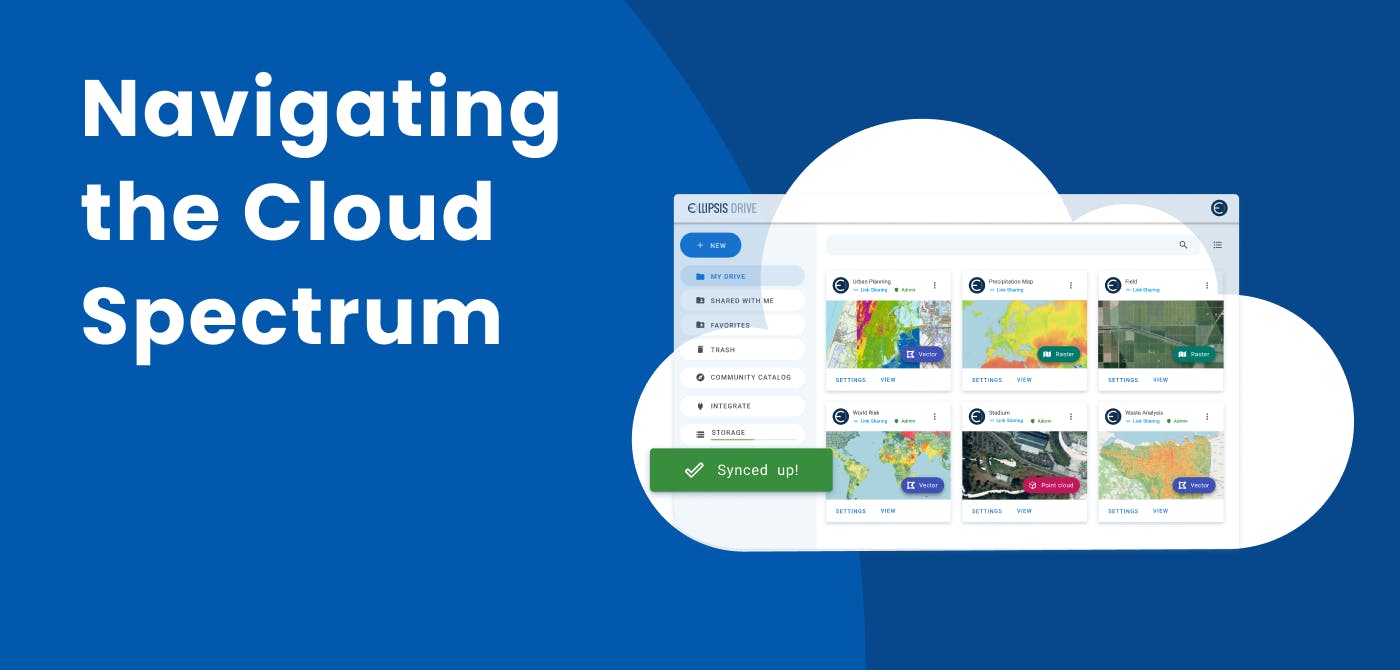GIS
Location Intelligence | Where Location Data meets Business Intelligence

Over the last decade or so, the importance of information has exponentially increased. With more and more data becoming available every day, it is obvious that data owners hold all the cards. Geospatial data has also taken huge leaps over the last past decade.
It has gone from being a ‘good-to-have’ feature to a ‘must have’ component of businesses of all kinds and sizes.
For businesses, the focus is on the geography of things, and it is through this science that location intelligence is maximized. Geography provides greater insight to help businesses make a decision, leading to questions like, "What can I do to improve things?" that sparks business growth.
Now let’s dive into the concept of location intelligence.
Contents
What is Location Intelligence?
Location Intelligence (LI) is the creation, visualization and deployment of smart maps, that is geospatial data overlaid with other key demographic variables. In recent years, the focus of organizations has shifted from merely collecting geospatial data to analyzing and optimizing it intensively via various GIS tools to draw insights and forecasts. That is exactly what Location Intelligence entails.
Demographic information is important, but what makes it relevant is the location aspect. It is what ties it all together and adds value to parties at both ends of a business transaction. More and more entities have become cognizant of this fact and have started integrating Location Intelligence heavily into their decision making processes.
How does Location Intelligence work and how is it beneficial?
Artificial Intelligence (AI) and Internet of Things (IoT) make huge strides every day. Marrying this information with location (geospatial) data was the logical thing to do. This coming together has given birth to Location Intelligence. Location Intelligence is said to be a form of Business Intelligence, driven primarily by geography!
Using various analytical tools, demographics can be viewed in conjunction with geospatial data to give stakeholders a holistic view of things. This holistic information set is analysed by data analysts and data scientists to draw meaningful insights, identify change patterns and create forecast models.
What all businesses and business leaders aspire to do is to make well informed decisions. Location Intelligence caters to this exact need.
Location Intelligence empowers businesses to optimize their decision making process. With location data easily available via smart phones and other devices at a very reasonable price point, decision makers get better value out of their budget.
Location Intelligence: Business Applications & Industries

Whether a business is in the public or private sector, geography has become a vital part of operations. Through it, the application of place and location has become seemingly endless, and with the assistance of technologies like IoT (Internet of Things), connecting the dots within each geography has become a lot easier.
As mentioned above, location data is a must have in today’s world. Needless to say, location does matter after all. Here are some of the many areas in which Location Intelligence is used -
Public amenities -
Local governments and municipalities can use it to monitor and manage traffic, identify and install streetlights and surveillance cameras in shady areas of the city
Retail -
Businesses can use Location Intelligence to optimize store locations as per required demographics. Telecommunication towers can be installed using Location Intelligence.
Marketing -
Marketing firms can use Location Intelligence to provide real time relevant offers to the customer base to increase uptake and as a result, business.
Simply put, Location Intelligence is what helps businesses make sense of what's happening in different locations, more specifically in their geographies. Through geography, we can organize where things are happening to different places. Plus, with things constantly evolving, tracking what's happening in different geographical places helps companies make the right decisions to minimize losses and maximize gains.
Here are some direct benefits/applications of location intelligence to business stakeholders -
Strategic Decision Making -
More and more companies are making Location Intelligence the backbone of their strategic outlook. These decisions seep into all different levels such as supply chain and distribution management. It also helps in identifying prime locations for expansion and growth.
Targeted Marketing -
As a result of location intelligence, organizations are more aware of the physical sales journey. They can pinpoint specific assets that are prime contributors of sales. This information can be used to optimize marketing efforts using geodata.
Improving Business Intelligence -
By combining location intelligence with demographics and other variables that play a crucial role towards business decisions, the quality and efficacy of business intelligence has also improved.
5 Myths about Location Intelligence

No exciting and new concept is complete without its fair share of myths, misconceptions and rumors.
Despite all the progress made, it can still be said that Location Intelligence is in its nascent stages and has a long way to go. There remains an air of uncertainty and mystery surrounding Location Intelligence.
Let’s debunk some of the common myths and misconceptions surrounding the concept of Location Intelligence.
Myth 1: Location Intelligence is the same as GIS
Oftentimes, Location Intelligence is interchangeably used with GIS within the industry. To put it simply, GIS is an analytical tool, a technology that can consume raw geospatial data as input. The output are insights and analysis of this raw data that are used for informed decision making. This process of using these insights for decision making is location intelligence.
GIS is the means. Location Intelligence is the solution.
Myth 2: Location Intelligence is only for specialists
Given the application of location intelligence in almost every business vertical, location intelligence has developed into something that is used extensively by stakeholders of varied technical backgrounds. With simple and easy-to-use platforms available, location data can be easily analysed and visualized by business experts to make informed decisions.
Ellipsis Drive is one such example for activating, organizing and exploring location data the easy way.
Myth 3: Location Intelligence is expensive
Location Intelligence doesn’t always have to be an expensive affair. Sure, a large organization can invest a significant amount to set up a professional team for the sole purpose of deducing location insights. But a smaller organization with limited resources has plenty of solutions as well. Location intelligence is often scalable and the costs are proportional to the scale of use.
Ellipsis Drive, as a geospatial data management solution, offers a storage based cost model that is ideal for such use cases.
Myth 4: Location Intelligence is only for large organizations
It is often misinterpreted that only large organizations with a dedicated location intelligence team can utilize this source of information. Some of the most successful campaigns by large organizations are based on the simplest of insights and analysis.
Location Intelligence can be used irrespective of the size of the organization. In fact it can be argued that it is even more useful for young organizations and start-ups that want to scale up their operations and have a focussed targeting strategy in place to optimize their limited resources.
Myth 5: Location Intelligence involves unethical acquisition of data
It is often assumed that customer data is acquired unethically and that there is an intrusion of privacy when it comes to location data. But that can be accounted for by a lack of customer awareness. Customers often unknowingly and impatiently agree to terms and conditions regarding the collection of their location details which often lead to them receiving personalized ads as a result of that information.
Challenges and Opportunities
As a result of smartphones and other budding technology, new location data continues to be generated everyday. It comes from different sources, in several different formats. Businesses need to have a GIS and other analytical tools that can keep up with this plethora of information, let alone deduce powerful insights and trends.
Location Intelligence is no longer something that is in the hands of a handful tech-savvy individuals. In fact, more and more individuals with non technical background are getting involved with geospatial data due to its versatile nature of use.
Final Thoughts
With technology ever improving, the science behind the "where" will only become much more critical to businesses. Billions of devices around the world are connected to one another in different ways. With location intelligence, it can be used by companies around the globe to track various activities in different geographies.
That being said, if your business has yet to employ some form of location intelligence to support your business, do so right away. The future is all about knowing what happens, where exactly it happens, along with why it happens. By answering all of these three questions, you can always be at the right place at the right time, ensuring that your audience looks to you first for what you have to offer, bringing more profits and growth to your company.
The industry is in need of a solution that is lean, adaptive and adaptive. A solution that can meet the appetite of technical as well as non technical background.
At Ellipsis Drive, we aspire to fill this gap with our plug and play solution that allows simple yet powerful collaboration of geospatial data. You can learn more about our solution and contact us if you find value in our offering!
It won't be long before Location Intelligence is the backbone of business plans of organizations. The fact is, there are several organizations that have strategies centered around Location Intelligence. These are the trend setters of our time and are definitely reaping the benefits for having the fore vision and courage to pursue it.
Liked what you read?

Subscribe to our monthly newsletter to receive the latest blogs, news and updates.
Take the Ellipsis Drive tour
in less than 2 minutes'
- A step-by-step guide on how to activate your geospatial data
- Become familiar with our user-friendly interface & design
- View your data integration options

Related Articles

Navigating the Cloud Spectrum: From Generalist to Specialized, and the Perfect Middle Ground
The modern cloud ecosystem spans a wide spectrum of offerings, from general-purpose infrastructure to highly specialized platforms built for domain-specific tasks. At one end, generalist clouds provi
5 min read

Unlocking the Potential of Data: Comparing Tabular and Non-Tabular Protocols
The world of data is a complex landscape and each year, the complexity of that landscape grows exponentially. A combination of new data capturing technology, data processing technology and demands fo
6 min read

Understanding the importance of GIS in Urban Planning
Cities are robust places filled with life, but before it becomes a cosmopolitan paradise, plenty of ever-evolving complexities are happening behind the scenes to bridge the gaps and create an area spa
3 min read